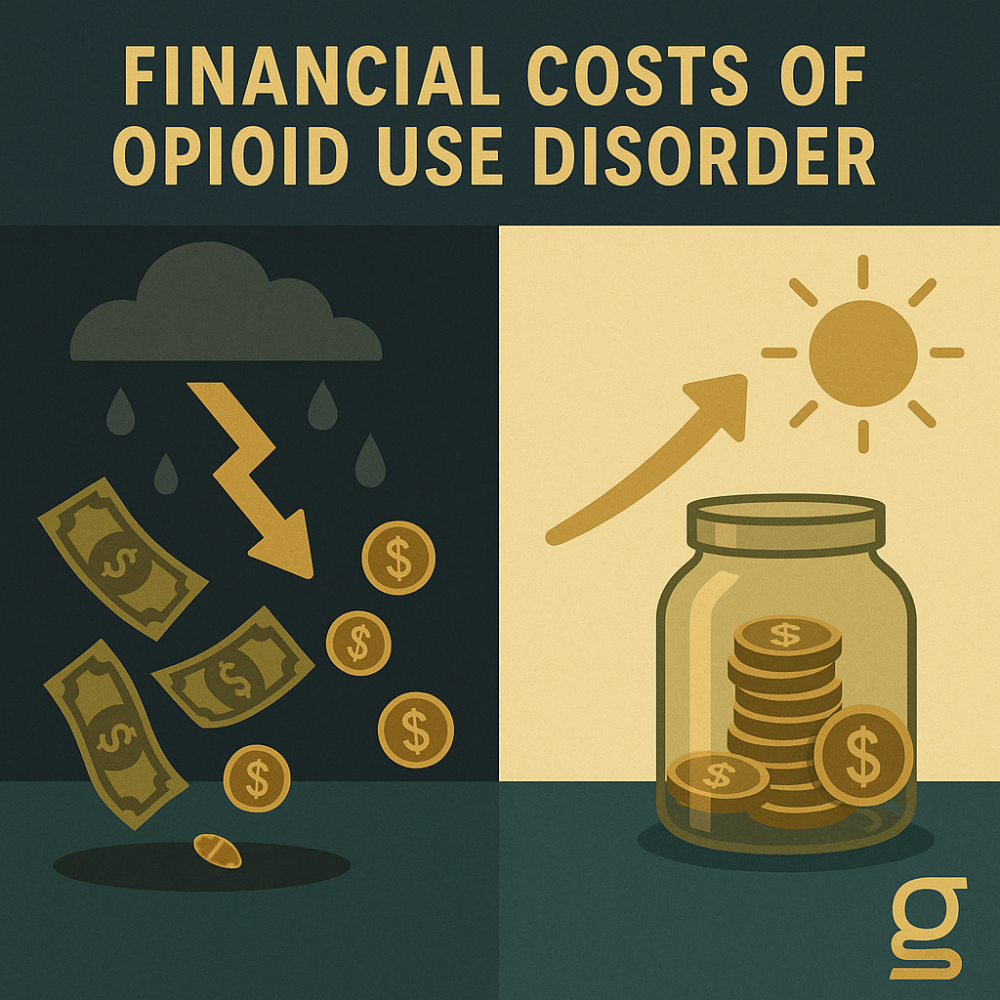Cocaine is a highly addictive stimulant drug. It has limited medical applications but is illegal in the U.S. for recreational use. Because of its potential for abuse, the Controlled Substances Act classifies cocaine as a Schedule II drug.1
Centers for Disease Control and Prevention (CDC) statistics warn, “Nearly 85% of overdose deaths [January-June 2019] involved illicitly manufactured fentanyls, heroin, cocaine, or methamphetamine (alone or in combination).”2
How Cocaine Affects the Brain and Body
When a person uses cocaine, they feel the effects almost immediately. They may experience euphoria, a burst of energy, increased focus and alertness, hypersensitivity to sight, sound, and touch, irritability, and a sense of paranoia. For some, cocaine may trigger aggression and violent behavior.3
Cocaine effects don’t last long. Depending on the method of use, effects last an average of ten to thirty minutes. For this reason, cocaine users tend to binge the drug, taking higher doses in a short period to maintain the effects.4 Binging with more frequent and higher doses often leads to addiction.
Once the effects wear off, users often feel exhausted and depressed for days, triggering an intense craving to overcome such feelings by taking more cocaine.5 Withdrawal symptoms make it challenging to stop using the drug without professional help.
What Causes Cocaine Withdrawal Symptoms?
Cocaine interferes with the normal function of neurotransmitters in the brain, especially those that regulate reward pathways and stress responses.6 Drug use triggers abnormally high levels of chemicals like dopamine that heighten euphoria and calm stress. As the brain adapts to certain levels of cocaine, it begins to require higher and more frequent doses to deliver the desired effect.7 Eventually, the body and brain cannot achieve pleasurable feelings without the drug.
If the drug user stops taking cocaine once they are physically and mentally dependent on the drug, they will experience withdrawal symptoms as the brain struggles to regain a natural balance. Withdrawal symptoms often include intense cravings for the addictive substance.
Studies have identified an overlap between the reward and stress pathways, finding stress triggers cocaine-seeking behavior.8
Withdrawal Symptoms
Although withdrawal from cocaine is not typically as dangerous as withdrawal from alcohol or other addictive drugs, side effects can be severe, with an increased risk of suicide, overdose, or severe mood disturbances.9 For this reason, most experts recommend medically supervised detoxification.
Withdrawal from addictive substances often includes vomiting, shaking, diarrhea, and other intense physical reactions, but these symptoms may not occur with cocaine withdrawal.10
Various factors influence the severity of withdrawal symptoms, most notably the duration of use.11 Although individual experiences may differ, cocaine withdrawal commonly includes:12,13
- Depression
- Fatigue
- Agitation and restless behavior
- Increased appetite
- A general feeling of discomfort
- Insomnia and vivid, unpleasant dreams
- Slowed thinking and activity
- Intense cravings for the drug
Depression
When a person stops using cocaine, the drug no longer triggers the brain to increase dopamine levels to produce pleasure. In cases where the brain can no longer initiate feelings of well-being naturally, depression can result.14
The period immediately following cessation of cocaine use is often referred to as a “crash,” because the person goes from euphoric feelings to depression, anxiety, intense sadness, and edginess.15 Symptoms other than depression are usually strongest during the first stage of withdrawal, then lessen in intensity.16 Depression can last long after stopping cocaine use, putting some people, especially those who used the drug long-term, at an increased risk of suicide.17
A person may experience some withdrawal symptoms even if there are traces of the drug still in their system.18
Fatigue
Stimulants like cocaine put the body into a state of hyperdrive, speeding up physical and mental activity but masking the toll that activity is taking on the body. When the individual stops using cocaine abruptly, the body “crashes” into a state of exhaustion as it tries to repair itself.
When a person is using cocaine, they often forego sleep and food, weakening the body physically and mentally. The body needs time to recover from the effects of the drugs and the depletion of the body’s energy reserves.19 The intensity of the crash and duration of fatigue symptoms vary depending on the method of cocaine use.
Sleep Problems
Sleep problems are a common side effect of cocaine withdrawal. Vivid or unpleasant dreams, trouble getting to and staying asleep, or too much sleep can be underlying causes of sleep issues. Despite overwhelming fatigue, people often struggle to regain healthy sleep patterns.
A study published in the Journal of Neuroscience found a “persistent reduction in nonrapid-eye-movement (NREM) and rapid-eye-movement (REM) sleep, as well as increased sleep fragmentation” in test subjects after prolonged withdrawal from cocaine.20 The apparent disruption in vital REM sleep may help explain sleep problems during and after cocaine withdrawal.
Increased Appetite
Cocaine use is known to suppress the appetite, often leading to weight loss and malnutrition.21 During and following withdrawal recovering individuals often experience an increase in appetite, which may be the body’s way of attempting to heal.
A study published in the journal Appetite found that “withdrawal from drugs of abuse is associated with overeating and weight gain.”
Cravings
One of the most challenging symptoms of withdrawal from any addictive substance is intense cravings. Users often take drugs like cocaine to soothe physical and emotional pain. When the drug is absent and the pain returns, often accompanied by significant withdrawal side effects, it is difficult for a person to avoid a return to drug use.
It may take a while to get through the withdrawal period. The acute withdrawal period may last one to two weeks; for some, symptoms may resolve. However, others may experience protracted (longer) withdrawal, meaning some symptoms may last several weeks or longer.22
To ensure patients are safe, comfortable, and have a significantly better chance for long-term recovery, most experts recommend a medical detox program followed by psychotherapy.
Contact Gallus Medical Detox to learn how we have helped thousands overcome cocaine dependence.
Sources
- https://www.dea.gov/sites/default/files/sites/getsmartaboutdrugs.com/files/publications/DoA_2017Ed_Updated_6.16.17.pdf
- https://www.cdc.gov/drugoverdose/featured-topics/VS-overdose-deaths-illicit-drugs.html
- https://nida.nih.gov/publications/drugfacts/cocaine
- https://nida.nih.gov/publications/drugfacts/cocaine
- https://medlineplus.gov/cocaine.html
- https://nida.nih.gov/publications/research-reports/cocaine/what-are-some-ways-cocaine-changes-brain#:~:text=Animal%20studies%20show%20that%20cocaine%20exposure%20can%20cause,proteins%E2%80%94in%20the%20reward%20pathway%2C%20particularly%20the%20nucleus%20accumbens
- https://nida.nih.gov/sites/default/files/drugfacts-cocaine.pdf#:~:text=Cocaine%20is%20a%20powerfully%20addictive%20stimulant%20drug%20made,cocaine%20looks%20like%20a%20fine%2C%20white%2C%20crystal%20powder
- https://pubmed.ncbi.nlm.nih.gov/23916481/
- https://medlineplus.gov/ency/article/000947.htm
- https://medlineplus.gov/ency/article/000947.htm
- https://www.ncbi.nlm.nih.gov/books/NBK459239/
- https://nida.nih.gov/sites/default/files/drugfacts-cocaine.pdf#:~:text=Cocaine%20is%20a%20powerfully%20addictive%20stimulant%20drug%20made,cocaine%20looks%20like%20a%20fine%2C%20white%2C%20crystal%20powder
- https://medlineplus.gov/ency/article/000947.htm
- https://www.webmd.com/connect-to-care/addiction-treatment-recovery/cocaine/cocaine-withdrawal-symptoms-you-should-know
- https://www.webmd.com/connect-to-care/addiction-treatment-recovery/cocaine/cocaine-withdrawal-symptoms-you-should-know
- https://www.verywellmind.com/what-to-expect-from-cocaine-withdrawal-21990
- https://medlineplus.gov/ency/article/000947.htm
- https://medlineplus.gov/ency/article/000947.htm
- https://www.verywellmind.com/comedown-crash-rebound-effect-after-drugs-4171269
- https://pubmed.ncbi.nlm.nih.gov/26424879/
- https://nida.nih.gov/publications/research-reports/cocaine/what-are-long-term-effects-cocaine-use
- https://store.samhsa.gov/sites/default/files/d7/priv/sma10-4554.pdf


 Steve B
Steve B 

 Casey Wilson
Casey Wilson